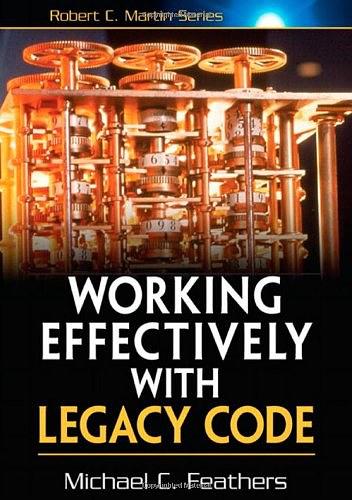Working Effectively with Legacy Code
内容简介
Get more out of your legacy systems: more performance, functionality, reliability, and manageability
Is your code easy to change? Can you get nearly instantaneous feedback when you do change it? Do you understand it? If the answer to any of these questions is no, you have legacy code, and it is draining time and money away from your development efforts.
In this book, Michael Feathers offers start-to-finish strategies for working more effectively with large, untested legacy code bases. This book draws on material Michael created for his renowned Object Mentor seminars: techniques Michael has used in mentoring to help hundreds of developers, technical managers, and testers bring their legacy systems under control.
The topics covered include
Understanding the mechanics of software change: adding features, fixing bugs, improving design, optimizing performance
Getting legacy code into a test harness
Writing tests that protect you against introducing new problems
Techniques that can be used with any language or platform—with examples in Java, C++, C, and C#
Accurately identifying where code changes need to be made
Coping with legacy systems that aren't object-oriented
Handling applications that don't seem to have any structure
This book also includes a catalog of twenty-four dependency-breaking techniques that help you work with program elements in isolation and make safer changes.
© Copyright Pearson Education. All rights reserved.
......(更多)
作者简介
MICHAEL C. FEATHERS works for Object Mentor, Inc., one of the world's top providers of mentoring, skill development, knowledge transfer, and leadership services in software development. He currently provides worldwide training and mentoring in Test-Driven Development (TDD), Refactoring, OO Design, Java, C#, C++, and Extreme Programming (XP). Michael is the original author of CppUnit, a C++ port of the JUnit testing framework, and FitCpp, a C++ port of the FIT integrated-testing framework. A member of ACM and IEEE, he has chaired CodeFest at three OOPSLA conferences.
......(更多)
目录
......(更多)
读书文摘
这种感觉在一次与一个金融业的团队一起工作的时候强烈到了顶点。当时的情况是:在我加入他们之前,他们已经意识到单元测试非常有用,然而实际上进行的却是全景式的测试,他们写的测试很繁琐,需要多次调用数据库并执行大量的代码。这种测试难于编写,而且也并不常用,因为运行耗费的时间实在是太长了。
想要完全不改变现有行为地添加新行为几乎是不可能的。
......(更多)






